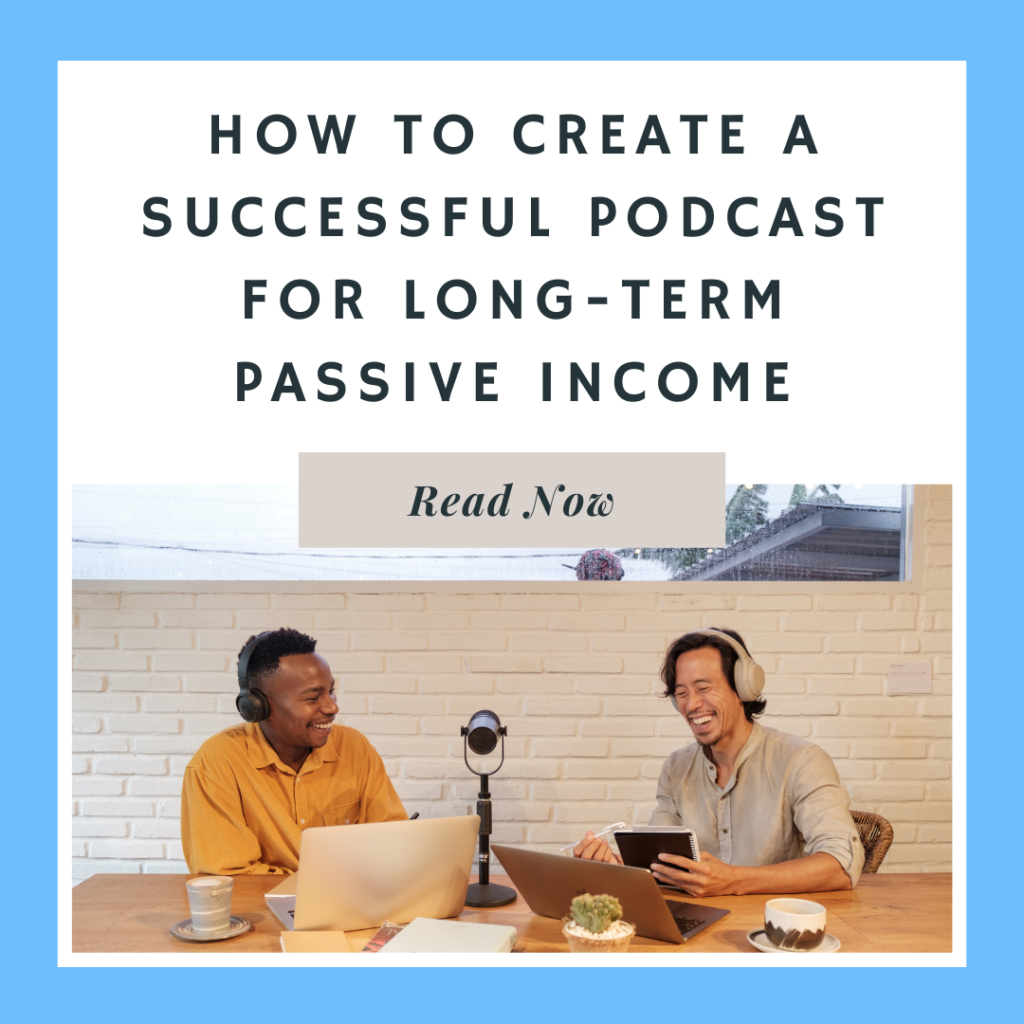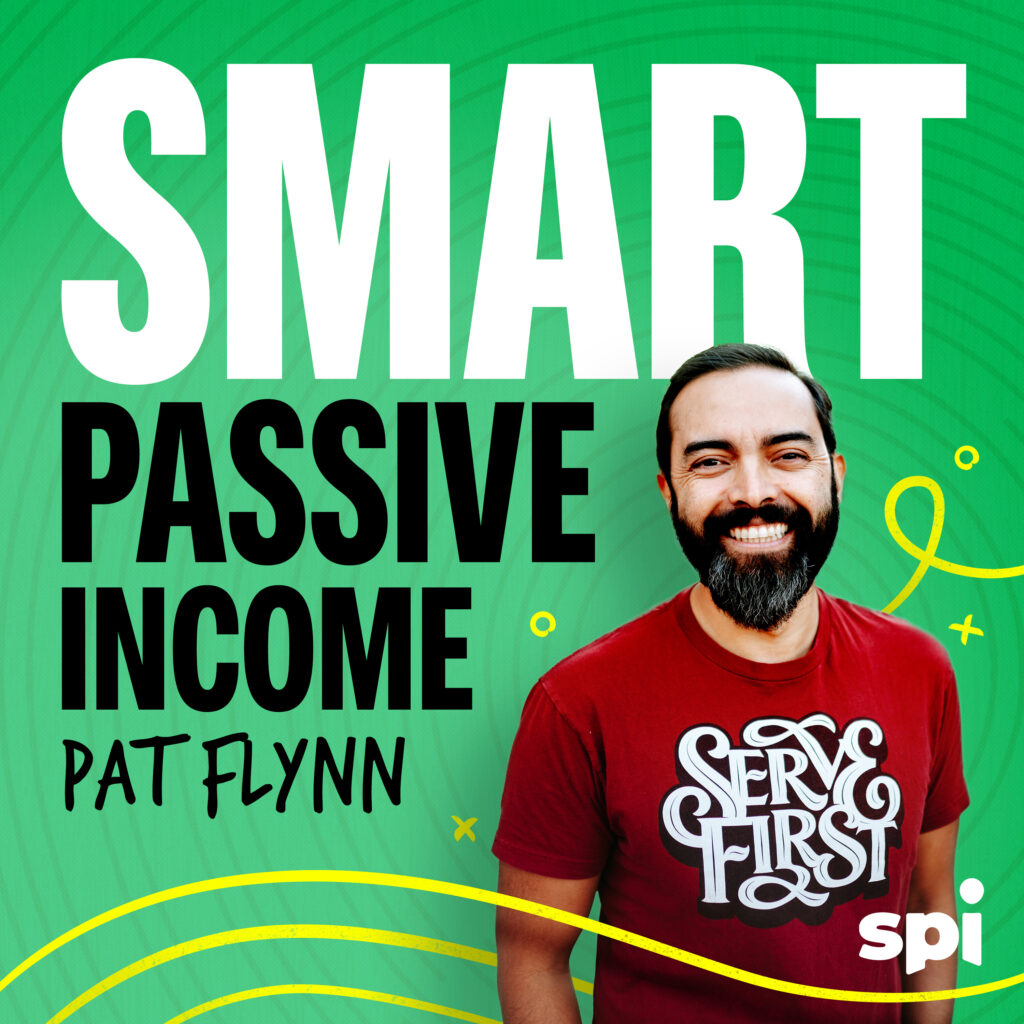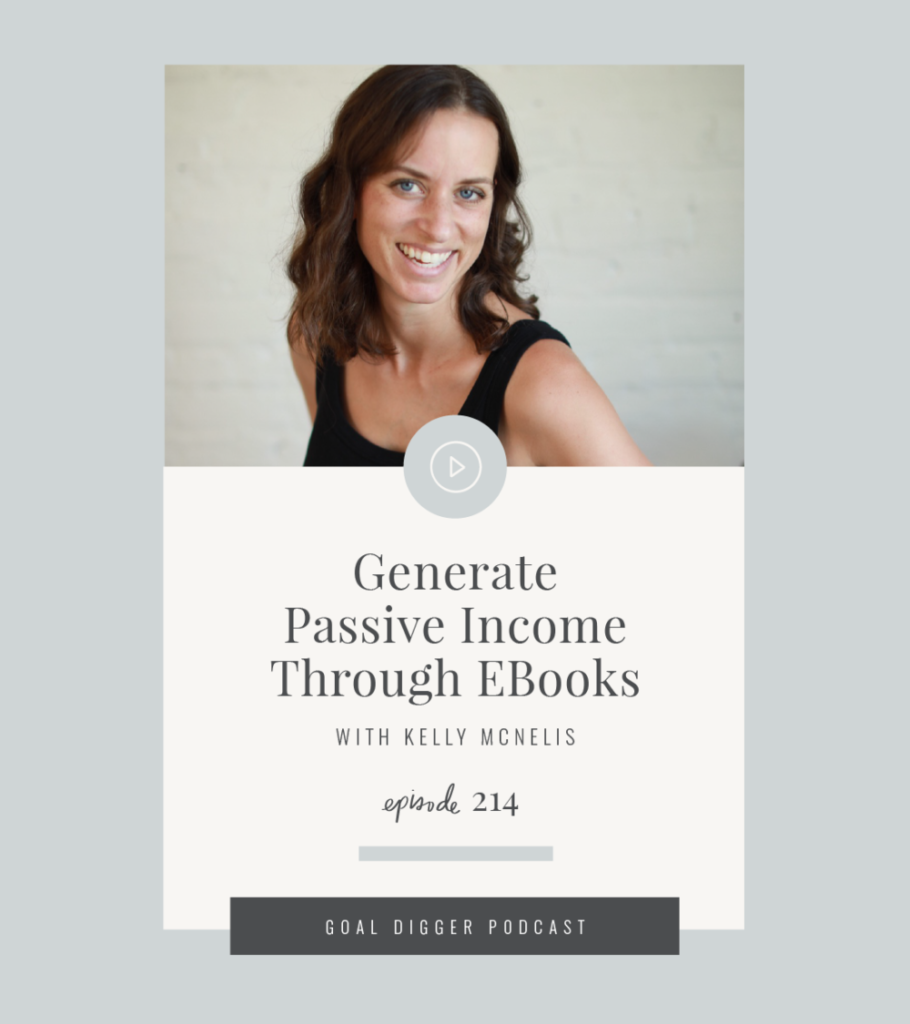are becoming increasingly popular as a way to make money while sharing your expertise and interests. In this article, you will discover the steps to creating a successful podcast that generates passive income. From choosing a niche and recording quality content to promoting your podcast and monetizing it, you will learn everything you need to know to start earning money through podcasting. So, get ready to embark on a profitable podcasting journey and turn your passion into a sustainable source of income.
Benefits of Generating Passive Income through Podcasting
Podcasting has quickly become one of the most popular and effective ways to generate passive income. With its flexibility, wide audience reach, and low startup costs, podcasting provides a unique opportunity for individuals to earn money while pursuing their passion. In this article, we will explore the various benefits of generating passive income through podcasting and provide a step-by-step guide on how to start your own profitable podcast.
Flexibility and Convenience
One of the key advantages of podcasting as a passive income stream is the flexibility and convenience it offers. Unlike other forms of content creation, such as blogging or video production, podcasting allows you to create content and connect with your audience while on the go. All you need is a decent microphone and a quiet space, and you can record episodes from anywhere in the world.
In addition, podcasting allows listeners to consume content while they are engaged in other activities, such as commuting, exercising, or doing household chores. This convenience factor makes podcasts a popular choice among busy individuals who are constantly multitasking and looking for ways to maximize their time.
Wide Audience Reach
With over 850,000 active podcasts and 30 million podcast episodes available worldwide, the podcasting industry has a vast and diverse audience. Podcasts have gained popularity across various demographics and niche markets, allowing you to find and connect with your target audience easily.
Additionally, podcasting platforms like Spotify, Apple Podcasts, and Stitcher offer powerful algorithms and discovery mechanisms that help listeners discover new shows based on their interests and preferences. This means that even if you are just starting out, there is a high potential for your podcast to reach a wide audience and gain traction.
Low Startup Costs
Starting a podcast does not require a huge financial investment. In fact, compared to other forms of content creation like video production, podcasting has relatively low startup costs. All you need is a reliable microphone, headphones, a computer, and editing software. These tools can be purchased at a reasonable price, and there are many affordable options available in the market.
Another advantage of podcasting is that you don’t need to invest in expensive studio equipment or rent a physical space. As long as you have a quiet and comfortable area to record, you can create high-quality episodes from the comfort of your home or any location of your choice.
How to Start a Podcast for Passive Income
Now that we have explored the benefits of generating passive income through podcasting, let’s dive into the step-by-step process of starting your own podcast.
Choosing a Niche
The first step in starting a podcast is to choose a niche or topic for your show. It’s important to select a niche that you are passionate about and have expertise in. This will not only make the content creation process more enjoyable for you but will also help you connect with your audience authentically.
When choosing a niche, consider the following factors:
- Is there a demand for content in this niche?
- Are there already established podcasts in this niche?
- What unique perspective or value can you bring to the topic?
Creating High-Quality Content
Once you have chosen your niche, the next step is to create high-quality content that will engage and captivate your audience. This involves planning and outlining episodes, conducting research, and ensuring that your content is valuable, informative, and entertaining.
To create high-quality content, consider the following tips:
- Have a clear structure and format for your episodes.
- Use storytelling techniques to engage your audience.
- Incorporate interviews, guest appearances, or expert insights to add variety and depth to your content.
- Always aim to deliver valuable takeaways and actionable insights for your listeners.
Recording and Editing
Recording and editing your podcast episodes is an essential step in the production process. Invest in a good microphone and headphones to ensure a professional sound quality. Choose a quiet location and minimize background noise as much as possible.
When it comes to editing, there are several software options available, ranging from free to premium. Some popular editing software includes Audacity, Adobe Audition, and GarageBand. Familiarize yourself with the software’s features and learn basic editing techniques such as removing background noise, adding music or sound effects, and adjusting volume levels.
Publishing and Promoting
Once your episodes are recorded and edited, it’s time to publish them on podcast hosting platforms such as Libsyn, Podbean, or Anchor. These platforms will distribute your podcast to various podcast directories, making it accessible to a global audience. Ensure you have compelling episode titles and descriptions to attract listeners and optimize your podcast’s discoverability.
Promoting your podcast is crucial to building an audience and generating passive income. Utilize social media platforms such as Instagram, Twitter, and Facebook to create buzz around your episodes. Engage with your audience, share behind-the-scenes content, and collaborate with other podcasters or influencers in your niche to increase your reach.

Monetization Strategies for Podcasting
Once your podcast is up and running, it’s time to explore different monetization strategies. Here are some popular ways to generate passive income through podcasting:
Sponsorship and Advertising
Securing sponsorships and running advertisements during your podcast episodes is one of the most common ways podcasters earn income. When your podcast reaches a certain number of listeners, you can approach relevant brands and advertisers and offer them advertising spots. There are also podcast advertising networks that can connect you with potential sponsors.
Affiliate Marketing
Affiliate marketing is another effective way to monetize your podcast. By promoting products or services related to your niche and including affiliate links in your show notes or website, you can earn a commission for every sale generated through your referral.
Product and Service Sales
If you have your own products or services, podcasting can be a great platform to promote and sell them. Whether it’s an online course, e-book, physical merchandise, or consulting services, your podcast audience can serve as potential customers who are already interested in what you have to offer.
Donations and Crowdfunding
Some podcasters rely on the support of their loyal listeners through donations or crowdfunding platforms like Patreon or Kickstarter. By offering bonus content or exclusive perks to patrons, you can incentivize them to contribute to your podcast’s growth and sustainability.
Building an Engaged Audience
Building a loyal and engaged audience is crucial for the success of your podcast and its ability to generate passive income. Here are some strategies to build and nurture your podcast audience:
Consistency and Regular Release Schedule
Consistency is key when it comes to podcasting. Establish a regular release schedule, whether it’s weekly, bi-weekly, or monthly, and stick to it. This helps to build a loyal audience who knows when to expect new episodes and keeps them coming back for more.
Creating Compelling Episode Titles and Descriptions
Catchy and intriguing episode titles and descriptions can attract new listeners and entice them to click and listen. Use keywords that accurately represent the content of your episodes and spark curiosity.
Engaging with Listeners
Engaging with your listeners is essential for building a community around your podcast. Respond to comments and messages, ask for feedback, and incorporate listener questions or stories into your episodes. This not only builds a stronger connection with your audience but also provides valuable insights into their needs and interests.
Cross-Promotion
Collaborating with other podcasters or influencers in your niche through cross-promotion can help you reach a wider audience. Guest appearances on other podcasts or inviting guests to your show exposes your content to new listeners and creates opportunities for networking and collaboration.

Effective Marketing and Promotion Techniques
To maximize the reach and impact of your podcast, implement effective marketing and promotion techniques. Here are some strategies to consider:
Utilizing Social Media
Leverage the power of social media platforms to promote your podcast. Create dedicated accounts for your podcast and share engaging content, behind-the-scenes glimpses, and episode highlights. Engage with your audience, participate in relevant conversations, and use relevant hashtags to increase your visibility.
Networking with Influencers
Connect and collaborate with influencers or experts in your niche to tap into their existing audience. Seek opportunities for guest appearances, interviews, or joint ventures that can help you gain exposure and reach new listeners.
Guest Appearances and Collaborations
Inviting guests to your podcast who have a following can expose your show to a new audience. Guests can share the episode with their followers, increasing your reach and generating more listeners. Additionally, consider appearing as a guest on other relevant podcasts to expand your reach and establish yourself as an expert in your field.
Optimizing Podcast SEO
Optimizing your podcast for search engines can improve its discoverability and attract more listeners. Use relevant keywords in your episode titles, descriptions, and show notes. Include timestamps, show summaries, and metadata to provide search engines with more context about your content.
Creating Additional Revenue Streams
In addition to traditional monetization strategies, there are several other ways to create additional revenue streams from your podcast:
Offering Premium Content or Memberships
Consider offering premium content or exclusive memberships to your audience. This can include bonus episodes, behind-the-scenes access, or exclusive interviews. By charging a subscription fee or offering a one-time purchase, you can generate recurring revenue from dedicated listeners.
Live Events and Workshops
Organize live events or workshops related to your podcast’s niche. This can include live recordings, Q&A sessions, or workshops that provide value to your audience. By selling tickets or charging a fee for participation, you can generate income while providing valuable experiences for your listeners.
Merchandise and Product Sales
Creating and selling merchandise related to your podcast can be a fun and profitable way to engage with your audience. This can include branded clothing, mugs, stickers, or any other merchandise that resonates with your listeners.
Coaching and Consulting Services
If you are an expert in your niche, consider offering coaching or consulting services to your listeners. This can be done on a one-on-one basis or through group coaching programs. Use your podcast as a platform to establish your authority and promote your services.

Tools and Resources for Podcasting
To ensure the success and professionalism of your podcast, it’s important to invest in the right tools and resources. Here are some essential tools for podcasting:
Recording and Editing Software
Choose a reliable recording and editing software that suits your needs and budget. Some popular options include Audacity (free), Adobe Audition, and GarageBand (for Mac users).
Podcast Hosting Platforms
Select a reliable podcast hosting platform to store and distribute your episodes. Some popular options include Libsyn, Podbean, and Anchor.
Marketing and Analytics Tools
Utilize marketing and analytics tools to track the performance of your podcast and measure its growth. Platforms like Chartable and Podtrac can provide valuable insights into your audience, downloads, and engagement.
Professional Equipment
Invest in a good-quality microphone, headphones, and a pop filter for clear and professional sound quality. Consider a USB microphone like the Audio-Technica ATR2100x-USB for its versatility and affordability.
Challenges and Tips for Generating Passive Income through Podcasting
While podcasting can be a rewarding and lucrative endeavor, it does come with its challenges. Here are some common challenges and tips to overcome them:
Overcoming the Fear of Public Speaking
Many individuals feel anxious or nervous about speaking in front of a microphone. To overcome this fear, practice regularly, start with shorter episodes, and remind yourself of your expertise and passion for the topic. Gradually, your confidence will grow, and you will feel more comfortable behind the microphone.
Consistently Delivering Value to Listeners
Consistency is crucial in podcasting, and delivering valuable content is key to retaining and growing your audience. Plan your episodes in advance, conduct thorough research, and focus on providing actionable insights and genuine value to your listeners.
Managing Time and Schedule
Podcasting can be time-consuming, especially when combined with the demands of daily life. To manage your time effectively, create a content calendar, batch record episodes in advance, and delegate tasks or seek help when needed. Prioritize your podcasting activities and set realistic expectations for yourself.
Finding the Right Guests
Inviting guests on your podcast can bring fresh perspectives and expertise to your episodes. However, finding the right guests can be a challenge. Look for individuals who align with your niche, have unique insights to share, and fit well with your podcast’s tone and style. Be proactive in reaching out to potential guests and build relationships with fellow podcasters in your niche to expand your network.

Case Studies of Successful Podcasters
To inspire you on your podcasting journey, here are a few case studies of successful podcasters who have made a significant impact in the industry:
Pat Flynn – Smart Passive Income
Pat Flynn’s podcast, Smart Passive Income, has become one of the most popular and trusted resources for individuals looking to build passive income streams. Through his authentic storytelling and actionable advice, Pat has cultivated a loyal audience and generated income through sponsorships, affiliate marketing, and his own online courses.
John Lee Dumas – Entrepreneurs on Fire
Entrepreneurs on Fire, hosted by John Lee Dumas, is a go-to resource for aspiring and seasoned entrepreneurs. With daily interviews featuring successful entrepreneurs, John has built a massive audience and monetizes his podcast through sponsorships and his own products and services.
Anna Faris – Anna Faris Is Unqualified
Anna Faris Is Unqualified is a celebrity-driven podcast hosted by actress Anna Faris. Through intimate and humorous conversations with fellow celebrities, Anna has created a loyal following and monetizes her podcast through sponsorships and live events.
Myleik Teele – MyTaughtYou
Myleik Teele’s MyTaughtYou podcast is a platform for women looking for inspiration and advice on career growth and personal development. Myleik monetizes her podcast through sponsorships, live events, and the sale of her own products, including journals and online courses.
Conclusion
The potential of generating passive income through podcasting is vast and is primarily dependent on creating valuable content, building a loyal audience, and effectively monetizing the platform. With dedication, consistency, and strategic marketing efforts, podcasting can become a lucrative source of passive income.
Remember to choose a niche you are passionate about, deliver high-quality content, engage with your audience, and experiment with various monetization strategies. Stay committed, continue to learn and improve your podcasting skills, and enjoy the journey of building a successful and profitable podcast.












